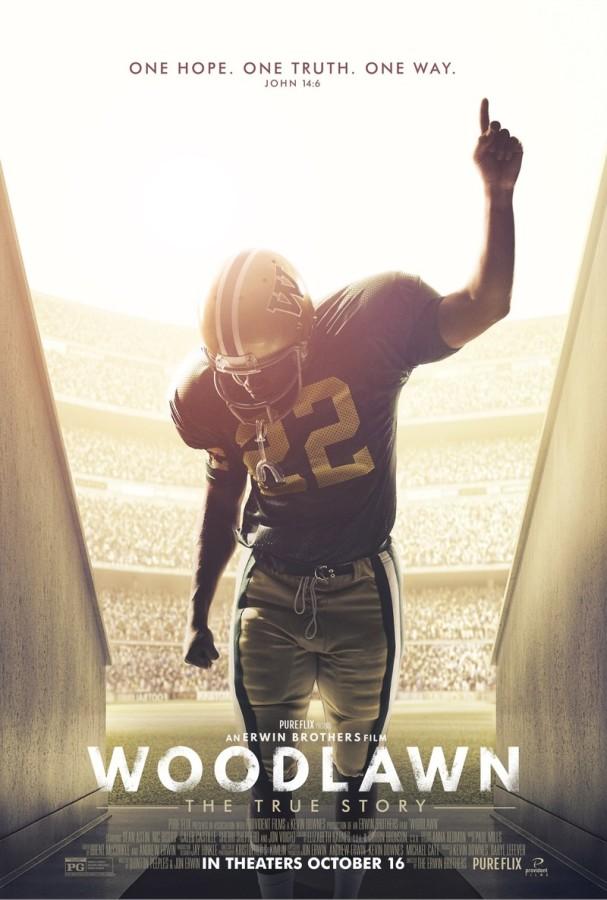Movie Review: Woodlawn
This past weekend I went to see Woodlawn, and for those looking for a feel-good sports film
based on a true story, I can tell you this–Woodlawn made over four million dollars after three days. If that’s not a sign of success, I’m not sure what is.
The film is set in a historically tumultuous time period: Birmingham Alabama, 1973. Woodlawn High School is set to end segregation in classes and in sports. This is where the main character comes in. Tony Nathan (played spectacularly by Caleb Castille) is a talented football player, but he constantly has to deal with racist comments, riots, and cross-burnings in the neighborhood.
When head coach Tandy Gerelds (actor Nic Bishop) decides desperate times call for desperate measures, he lets a speaker transformed by the so-called “Jesus Revolution” of the late 1960’s talk to his team. What happens next is legendary and a definitive part of history. Through a spiritual reformation in the team, they’re able to overcome discrimination in the team and become a game-winning family.
Woodlawn has already received critical acclaim, and it was given an 89% on Rotten Tomatoes and an A+ grade on Cinema Score. The football scenes include original footage of the 1974 game between Woodlawn and Banks High School and several emotional high points as the rival schools attract the largest crowd at a high school football game in the state of Alabama–ever.
As a sports film, it succeeds in a memorable storyline, historic footage, and dialogue that keeps the action moving. If you can get past the handful of cliche moments, Woodlawn shines a new light on a topic that’s still relevant today.





